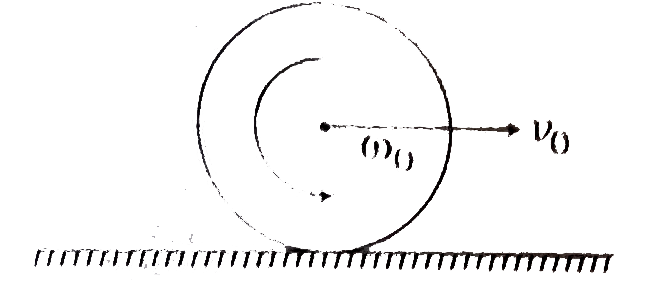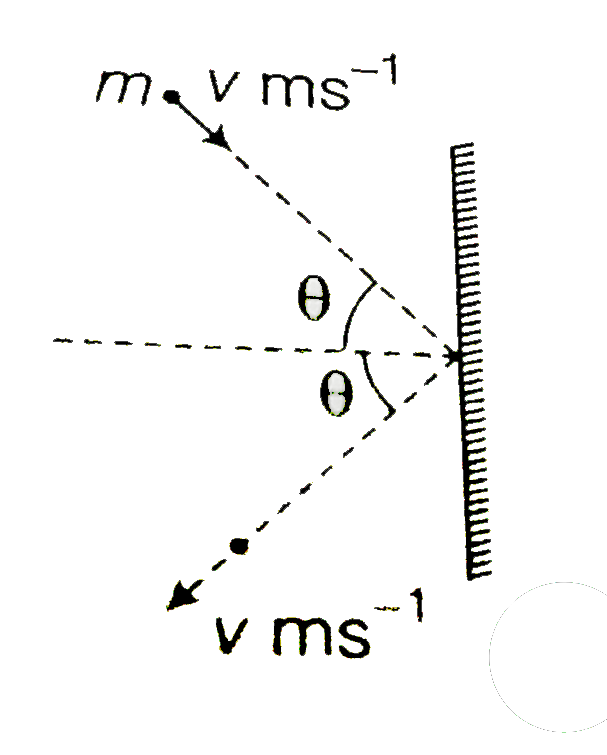Angular momentum is conserved
always
never
when external force is absent
when external torque is absent
The correct Answer is:D
To solve the question regarding the conservation of angular momentum, we will analyze each option based on the principles of physics.
1. Understanding Angular Momentum:
Angular momentum (L) of a system is defined as the product of the moment of inertia (I) and the angular velocity (ω). Mathematically, it can be expressed as:
L=I⋅ω
2. Law of Conservation of Angular Momentum:
The law states that if no external torque acts on a system, the total angular momentum of that system remains constant. This means that angular momentum is conserved in the absence of external influences.
3. Analyzing the Options:
- Option A: Always conserved.
- This is incorrect because angular momentum is not conserved in the presence of external torques.
- Option B: Never conserved.
- This is also incorrect as there are conditions (specifically, when no external torque is present) under which angular momentum is conserved.
- Option C: When external force is absent.
- This is misleading because angular momentum can still change due to external forces if those forces create a torque. Therefore, this option is not entirely accurate.
- Option D: When external torque is absent.
- This is correct. According to the conservation law, angular momentum is conserved when there is no external torque acting on the system.
4. Conclusion:
Based on the analysis, the correct answer is Option D, which states that angular momentum is conserved when external torque is absent.
Final Answer:
Option D: When external torque is absent.
---
Angular momentum (L) of a system is defined as the product of the moment of inertia (I) and the angular velocity (ω). Mathematically, it can be expressed as:
L=I⋅ω
The law states that if no external torque acts on a system, the total angular momentum of that system remains constant. This means that angular momentum is conserved in the absence of external influences.
- Option A: Always conserved.
- This is incorrect because angular momentum is not conserved in the presence of external torques.
- Option B: Never conserved.
- This is also incorrect as there are conditions (specifically, when no external torque is present) under which angular momentum is conserved.
- Option C: When external force is absent.
- This is misleading because angular momentum can still change due to external forces if those forces create a torque. Therefore, this option is not entirely accurate.
- Option D: When external torque is absent.
- This is correct. According to the conservation law, angular momentum is conserved when there is no external torque acting on the system.
Based on the analysis, the correct answer is Option D, which states that angular momentum is conserved when external torque is absent.
Option D: When external torque is absent.
Similar Questions
Assertion : A uniform disc of radius R is performing impure rolling motion on a rough horizontal plane as shown in figur. After some time the disc comes to rest. It is possible only when v0=ω0R2

Reason : For a body performing pure rolling motion, the angular momentum uis conserved about any point in space.
View SolutionThe linear momentum is conserved in
View Solution
Knowledge Check
Assertion: The motion of a particle under the central force is always confined to a plane.
Reason: Angular momentum is always conserved in the motion under a central force.AIf both assertion and reason are true and reason is the correct explanation of assertionBIf both assertion and reason are truebut reason is not the correct explanation of assertionCIf assertion is true but reason is falseDIf both assertion and reason are false.
Match the items in column I to the items in column II given below Column-IColumn-II(A)Planet moving around the sun in the elliptical orbit(p)Linear momentum is conserved/constant(B)Planet moving around the sun in the fixed circular orbit(q)Angular momentum is conserved about one point in space.(C)A particle of mass m1 is projected towards a stationary mass m2. For m1 and m2 as system(r)Kinetic energy is conserved(D)A particle of mass m is projected by making an angle θ from the surface of the earth with speed less than escape velocity(s)Total energy is conserved
View SolutionAngular momentum(L) is one of the following?
View SolutionThe rate of change of angular momentum is called
View SolutionA ball is moving towards the wall as shown in diagram then momentum is conserved

View Solution(I) What is the condition of angular momentum conservation?
(ii) A man sets on a sprining piano with his arms folded. If he extends his arms, what happens to his angular velocity?
View SolutionThe angular momentum is?
View SolutionFor a d-electron, the orbital angular momentum is :
View Solution
